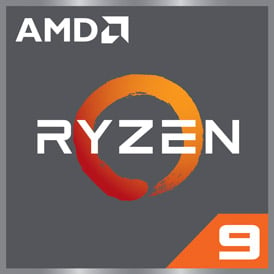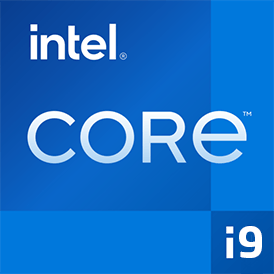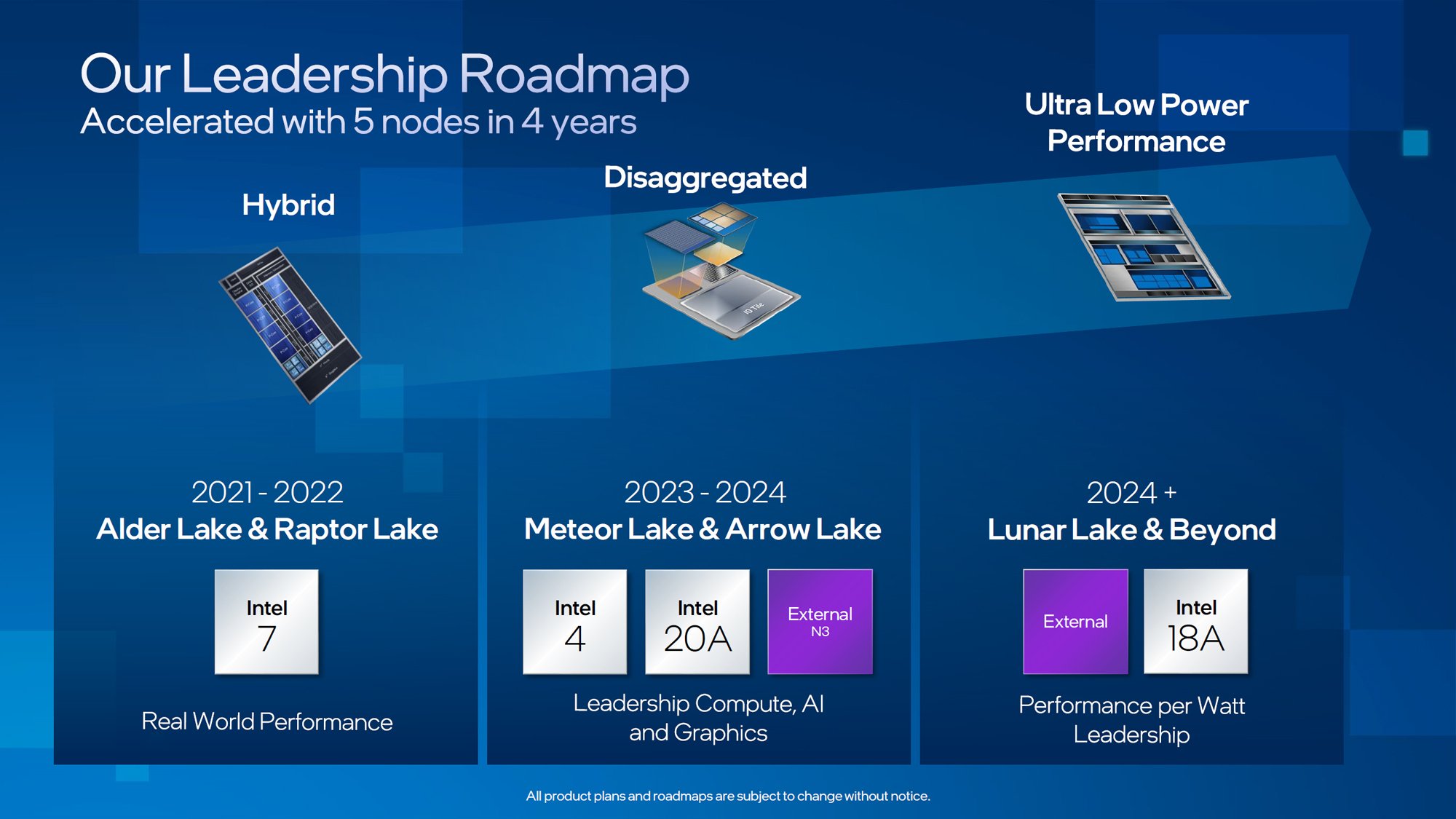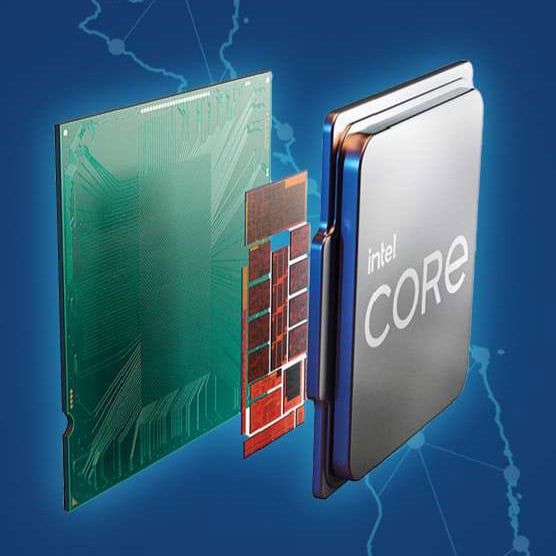
AMD Ryzen 9 7950X3D vs Intel Core i9-13900K
Last updated:
CPU comparison with benchmarks

|
 |

|
| AMD Ryzen 9 7950X3D | Intel Core i9-13900K | |
CPU comparisonAMD Ryzen 9 7950X3D or Intel Core i9-13900K - which processor is faster? In this comparison we look at the differences and analyze which of these two CPUs is better. We compare the technical data and benchmark results.
The AMD Ryzen 9 7950X3D has 16 cores with 32 threads and clocks with a maximum frequency of 5.70 GHz. Up to 128 GB of memory is supported in 2 memory channels. The AMD Ryzen 9 7950X3D was released in Q1/2023. The Intel Core i9-13900K has 24 cores with 32 threads and clocks with a maximum frequency of 5.80 GHz. The CPU supports up to 192 GB of memory in 2 memory channels. The Intel Core i9-13900K was released in Q4/2022. |
||
| AMD Ryzen 9 (35) | Family | Intel Core i9 (78) |
| AMD Ryzen 7000 (14) | CPU group | Intel Core i 13000 (17) |
| 6 | Generation | 13 |
| Raphael (Zen 4) | Architecture | Raptor Lake S |
| Desktop / Server | Segment | Desktop / Server |
| -- | Predecessor | Intel Core i9-12900K |
| -- | Successor | Intel Core i9-14900K |
|
|
||
CPU Cores and Base FrequencyThe AMD Ryzen 9 7950X3D has 16 CPU cores and can calculate 32 threads in parallel. The clock frequency of the AMD Ryzen 9 7950X3D is 4.20 GHz (5.70 GHz) while the Intel Core i9-13900K has 24 CPU cores and 32 threads can calculate simultaneously. The clock frequency of the Intel Core i9-13900K is at 3.00 GHz (5.80 GHz). |
||
| AMD Ryzen 9 7950X3D | Characteristic | Intel Core i9-13900K |
| 16 | Cores | 24 |
| 32 | Threads | 32 |
| normal | Core architecture | hybrid (big.LITTLE) |
| Yes | Hyperthreading | Yes |
| No | Overclocking ? | Yes |
| 4.20 GHz (5.70 GHz) 16x Zen 4 |
A-Core | 3.00 GHz (5.80 GHz) 8x Raptor Cove |
| -- | B-Core | 2.20 GHz (4.30 GHz) 16x Gracemont |
Internal GraphicsThe AMD Ryzen 9 7950X3D or Intel Core i9-13900K has integrated graphics, called iGPU for short. The iGPU uses the system's main memory as graphics memory and sits on the processor's die. |
||
| AMD Radeon Graphics (Raphael) | GPU | Intel UHD Graphics 770 |
| 0.40 GHz | GPU frequency | 0.30 GHz |
| 2.20 GHz | GPU (Turbo) | 1.65 GHz |
| 9 | GPU Generation | 11 |
| 5 nm | Technology | 10 nm |
| 3 | Max. displays | 3 |
| 2 | Compute units | 32 |
| 128 | Shader | 256 |
| No | Hardware Raytracing | No |
| No | Frame Generation | No |
| 8 GB | Max. GPU Memory | 64 GB |
| 12 | DirectX Version | 12 |
Hardware codec supportA photo or video codec that is accelerated in hardware can greatly accelerate the working speed of a processor and extend the battery life of notebooks or smartphones when playing videos. |
||
| AMD Radeon Graphics (Raphael) | GPU | Intel UHD Graphics 770 |
| Decode / Encode | Codec h265 / HEVC (8 bit) | Decode / Encode |
| Decode / Encode | Codec h265 / HEVC (10 bit) | Decode / Encode |
| Decode / Encode | Codec h264 | Decode / Encode |
| Decode / Encode | Codec VP9 | Decode / Encode |
| Decode / Encode | Codec VP8 | Decode / Encode |
| Decode | Codec AV1 | Decode |
| Decode / Encode | Codec AVC | Decode / Encode |
| Decode | Codec VC-1 | Decode |
| Decode / Encode | Codec JPEG | Decode / Encode |
Memory & PCIeThe AMD Ryzen 9 7950X3D can use up to 128 GB of memory in 2 memory channels. The maximum memory bandwidth is 83.2 GB/s. The Intel Core i9-13900K supports up to 192 GB of memory in 2 memory channels and achieves a memory bandwidth of up to 89.6 GB/s. |
||
| AMD Ryzen 9 7950X3D | Characteristic | Intel Core i9-13900K |
| DDR5-5200 | Memory | DDR5-5600, DDR4-3200 |
| 128 GB | Max. Memory | 192 GB |
| 2 (Dual Channel) | Memory channels | 2 (Dual Channel) |
| 83.2 GB/s | Max. Bandwidth | 89.6 GB/s |
| Yes | ECC | Yes |
| 16.00 MB | L2 Cache | 32.00 MB |
| 128.00 MB | L3 Cache | 36.00 MB |
| 5.0 | PCIe version | 5.0 |
| 24 | PCIe lanes | 20 |
| 94.5 GB/s | PCIe Bandwidth | 78.8 GB/s |
Thermal ManagementThe thermal design power (TDP for short) of the AMD Ryzen 9 7950X3D is 120 W, while the Intel Core i9-13900K has a TDP of 125 W. The TDP specifies the necessary cooling solution that is required to cool the processor sufficiently. |
||
| AMD Ryzen 9 7950X3D | Characteristic | Intel Core i9-13900K |
| 120 W | TDP (PL1 / PBP) | 125 W |
| 162 W | TDP (PL2) | 253 W |
| -- | TDP up | -- |
| -- | TDP down | -- |
| 89 °C | Tjunction max. | 100 °C |
Technical detailsThe AMD Ryzen 9 7950X3D is manufactured in 5 nm and has 144.00 MB cache. The Intel Core i9-13900K is manufactured in 10 nm and has a 68.00 MB cache. |
||
| AMD Ryzen 9 7950X3D | Characteristic | Intel Core i9-13900K |
| 5 nm | Technology | 10 nm |
| Chiplet | Chip design | Monolithic |
| x86-64 (64 bit) | Instruction set (ISA) | x86-64 (64 bit) |
| SSE4a, SSE4.1, SSE4.2,FMA3, AVX2, AVX512 | ISA extensions | SSE4.1, SSE4.2, AVX2, AVX2+ |
| AM5 (LGA 1718) | Socket | LGA 1700 |
| AMD-V, SVM | Virtualization | VT-x, VT-x EPT, VT-d |
| Yes | AES-NI | Yes |
| Windows 10, Windows 11, Linux | Operating systems | Windows 10, Windows 11, Linux |
| Q1/2023 | Release date | Q4/2022 |
| -- | Release price | 589 $ |
| show more data | show more data | |
Rate these processors
Average performance in benchmarks
⌀ Single core performance in 4 CPU benchmarks
⌀ Multi core performance in 5 CPU benchmarks
Cinebench 2024 (Single-Core)
The Cinebench 2024 benchmark is based on the Redshift rendering engine, which is also used in Maxon's 3D program Cinema 4D. The benchmark runs are each 10 minutes long to test whether the processor is limited by its heat generation.
|
|
AMD Ryzen 9 7950X3D
16C 32T @ 5.70 GHz |
||
|
|
Intel Core i9-13900K
24C 32T @ 5.80 GHz |
||
Cinebench 2024 (Multi-Core)
The Multi-Core test of the Cinebench 2024 benchmark uses all cpu cores to render using the Redshift rendering engine, which is also used in Maxons Cinema 4D. The benchmark run is 10 minutes long to test whether the processor is limited by its heat generation.
|
|
AMD Ryzen 9 7950X3D
16C 32T @ 5.70 GHz |
||
|
|
Intel Core i9-13900K
24C 32T @ 5.80 GHz |
||
Cinebench R23 (Single-Core)
Cinebench R23 is the successor of Cinebench R20 and is also based on the Cinema 4 Suite. Cinema 4 is a worldwide used software to create 3D forms. The single-core test only uses one CPU core, the amount of cores or hyperthreading ability doesn't count.
|
|
AMD Ryzen 9 7950X3D
16C 32T @ 5.70 GHz |
||
|
|
Intel Core i9-13900K
24C 32T @ 5.80 GHz |
||
Cinebench R23 (Multi-Core)
Cinebench R23 is the successor of Cinebench R20 and is also based on the Cinema 4 Suite. Cinema 4 is a worldwide used software to create 3D forms. The multi-core test involves all CPU cores and taks a big advantage of hyperthreading.
|
|
AMD Ryzen 9 7950X3D
16C 32T @ 5.00 GHz |
||
|
|
Intel Core i9-13900K
24C 32T @ 5.50 GHz |
||
Geekbench 5, 64bit (Single-Core)
Geekbench 5 is a cross plattform benchmark that heavily uses the systems memory. A fast memory will push the result a lot. The single-core test only uses one CPU core, the amount of cores or hyperthreading ability doesn't count.
|
|
AMD Ryzen 9 7950X3D
16C 32T @ 5.70 GHz |
||
|
|
Intel Core i9-13900K
24C 32T @ 5.80 GHz |
||
Geekbench 5, 64bit (Multi-Core)
Geekbench 5 is a cross plattform benchmark that heavily uses the systems memory. A fast memory will push the result a lot. The multi-core test involves all CPU cores and taks a big advantage of hyperthreading.
|
|
AMD Ryzen 9 7950X3D
16C 32T @ 5.00 GHz |
||
|
|
Intel Core i9-13900K
24C 32T @ 5.50 GHz |
||
Geekbench 6 (Single-Core)
Geekbench 6 is a benchmark for modern computers, notebooks and smartphones. What is new is an optimized utilization of newer CPU architectures, e.g. based on the big.LITTLE concept and combining CPU cores of different sizes. The single-core benchmark only evaluates the performance of the fastest CPU core, the number of CPU cores in a processor is irrelevant here.
|
|
AMD Ryzen 9 7950X3D
16C 32T @ 5.70 GHz |
||
|
|
Intel Core i9-13900K
24C 32T @ 5.80 GHz |
||
Geekbench 6 (Multi-Core)
Geekbench 6 is a benchmark for modern computers, notebooks and smartphones. What is new is an optimized utilization of newer CPU architectures, e.g. based on the big.LITTLE concept and combining CPU cores of different sizes. The multi-core benchmark evaluates the performance of all of the processor's CPU cores. Virtual thread improvements such as AMD SMT or Intel's Hyper-Threading have a positive impact on the benchmark result.
|
|
AMD Ryzen 9 7950X3D
16C 32T @ 5.00 GHz |
||
|
|
Intel Core i9-13900K
24C 32T @ 5.50 GHz |
||
iGPU - FP32 Performance (Single-precision GFLOPS)
The theoretical computing performance of the internal graphics unit of the processor with simple accuracy (32 bit) in GFLOPS. GFLOPS indicates how many billion floating point operations the iGPU can perform per second.
|
|
AMD Ryzen 9 7950X3D
AMD Radeon Graphics (Raphael) @ 2.20 GHz |
||
|
|
Intel Core i9-13900K
Intel UHD Graphics 770 @ 1.65 GHz |
||
Estimated results for PassMark CPU Mark
Some of the CPUs listed below have been benchmarked by CPU-monkey. However the majority of CPUs have not been tested and the results have been estimated by a CPU-monkey’s secret proprietary formula. As such they do not accurately reflect the actual Passmark CPU mark values and are not endorsed by PassMark Software Pty Ltd.
|
|
AMD Ryzen 9 7950X3D
16C 32T @ 5.00 GHz |
||
|
|
Intel Core i9-13900K
24C 32T @ 5.50 GHz |
||
CPU performance per watt (efficiency)
Efficiency of the processor under full load in the Cinebench R23 (multi-core) benchmark. The benchmark result is divided by the average energy required (CPU package power in watts). The higher the value, the more efficient the CPU is under full load.
|
|
AMD Ryzen 9 7950X3D
38,581 CB R23 MC @ 136 W |
||
|
|
Intel Core i9-13900K
39,652 CB R23 MC @ 252 W |
||
Cinebench R20 (Single-Core)
Cinebench R20 is the successor of Cinebench R15 and is also based on the Cinema 4 Suite. Cinema 4 is a worldwide used software to create 3D forms. The single-core test only uses one CPU core, the amount of cores or hyperthreading ability doesn't count.
|
|
AMD Ryzen 9 7950X3D
16C 32T @ 5.70 GHz |
||
|
|
Intel Core i9-13900K
24C 32T @ 5.80 GHz |
||
Cinebench R20 (Multi-Core)
Cinebench R20 is the successor of Cinebench R15 and is also based on the Cinema 4 Suite. Cinema 4 is a worldwide used software to create 3D forms. The multi-core test involves all CPU cores and taks a big advantage of hyperthreading.
|
|
AMD Ryzen 9 7950X3D
16C 32T @ 5.00 GHz |
||
|
|
Intel Core i9-13900K
24C 32T @ 5.50 GHz |
||
Blender 3.1 Benchmark
In the Blender Benchmark 3.1, the scenes "monster", "junkshop" and "classroom" are rendered and the time required by the system is measured. In our benchmark we test the CPU and not the graphics card. Blender 3.1 was presented as a standalone version in March 2022.
|
|
AMD Ryzen 9 7950X3D
16C 32T @ 5.00 GHz |
||
|
|
Intel Core i9-13900K
24C 32T @ 5.50 GHz |
||
CPU-Z Benchmark 17 (Single-Core)
The CPU-Z benchmark measures a processor's performance by measuring the time it takes the system to complete all benchmark calculations. The faster the benchmark is completed, the higher the score.
|
|
AMD Ryzen 9 7950X3D
16C 32T @ 5.00 GHz |
||
|
|
Intel Core i9-13900K
24C 32T @ 5.50 GHz |
||
CPU-Z Benchmark 17 (Multi-Core)
The CPU-Z benchmark measures a processor's performance by measuring the time it takes the system to complete all benchmark calculations. The faster the benchmark is completed, the higher the score.
|
|
AMD Ryzen 9 7950X3D
16C 32T @ 4.20 GHz |
||
|
|
Intel Core i9-13900K
24C 32T @ 3.00 GHz |
||
Cinebench R15 (Single-Core)
Cinebench R15 is the successor of Cinebench 11.5 and is also based on the Cinema 4 Suite. Cinema 4 is a worldwide used software to create 3D forms. The single-core test only uses one CPU core, the amount of cores or hyperthreading ability doesn't count.
|
|
AMD Ryzen 9 7950X3D
16C 32T @ 5.70 GHz |
||
|
|
Intel Core i9-13900K
24C 32T @ 5.80 GHz |
||
Cinebench R15 (Multi-Core)
Cinebench R15 is the successor of Cinebench 11.5 and is also based on the Cinema 4 Suite. Cinema 4 is a worldwide used software to create 3D forms. The multi-core test involves all CPU cores and taks a big advantage of hyperthreading.
|
|
AMD Ryzen 9 7950X3D
16C 32T @ 5.00 GHz |
||
|
|
Intel Core i9-13900K
24C 32T @ 5.50 GHz |
||
Devices using this processor |
|
| AMD Ryzen 9 7950X3D | Intel Core i9-13900K |
| Unknown | Unknown |
News and articles for the AMD Ryzen 9 7950X3D and the Intel Core i9-13900K

AMD Ryzen 7000 and Intel Core i 13 Gen at almost 6 GHz clock speed
Posted by Stefan on 2022-08-29
In September, both AMD and Intel are introducing their new mainstream desktop processors. It doesn't seem to have been as close as this year for a long time, leaked benchmarks of the new top models from AMD and Intel point to a head-to-head race.
This year even the 6 GHz clock limit is almost within reach. With a good cooler and some overclocking it should be possible to reach the 6 GHz limit. But even in series production, the manufacturers try to realize the highest possible clock frequency, at least on one core.
This year even the 6 GHz clock limit is almost within reach. With a good cooler and some overclocking it should be possible to reach the 6 GHz limit. But even in series production, the manufacturers try to realize the highest possible clock frequency, at least on one core.

Intel Core i7-13700K could debut with 16 cores and 24 threads
Posted by Stefan on 2022-07-20
According to an internal Intel slide published at the end of last year, the Intel Core i7-13700K could have 8+8, i.e. 16 CPU cores that provide 24 threads. The interesting thing about the slide is that it was recently confirmed by newer leaks of the Intel Core i9-13900K and the Intel Core i5-13600K as the number of cores and also the size of the cache matches with recently published CPU-Z screenshots of alleged development models.
Comparison of the two processors
With the AMD Ryzen 9 7950X3D, we are today comparing AMD's mainstream desktop top model with Intel's desktop top model, the Intel Core i9-13900K. Both processors are designed for users who need maximum performance both in computer games and for demanding applications.The AMD Ryzen 9 7950X3D is a processor with 16 equally sized CPU cores that can process up to 32 threads at the same time thanks to AMD's Simultaneous Multithreading technology. The clock frequency is 4.2 GHz, which can reach up to 5.7 GHz in turbo mode.
Intel is taking a different approach with the Intel Core i9-13900K. A hybrid core structure is used in the Intel Core i9-13900K, which consists of 8 large performance cores (Raptor Cove architecture) and a further 16 smaller efficiency cores (Gracemont architecture). The clock frequency is 3.0 GHz (5.8 GHz Turbo), the smaller cores clock at 2.2 GHz (4.3 GHz in Turbo mode).
Processors with a hybrid core structure are usually more efficient when idle and also in partial load ranges. Under full load, the advantage over a classic core structure is no longer there.
Both processors have an integrated graphics unit, which is not very powerful on either processor, but is sufficient for image and video output. Modern computer games require a dedicated graphics card.
Both the Intel Core i9-13900K and the AMD Ryzen 9 7950X3D can address modern DDR5 RAM. The Intel Core i9-13900K officially supports up to 128GB of DDR5-5600 memory with a maximum bandwidth of just under 79GB per second. The AMD Ryzen 9 7950X3D can also support 128 GB of memory with up to DDR5-5200.
Both processors also support the current PCIe 5.0 standard in order to be able to connect fast graphics cards and M.2 SSDs in the best possible way.
Popular comparisons containing this CPUs
back to index









